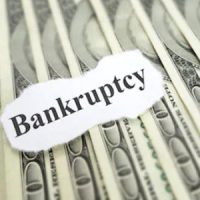What Is a “No Asset” Bankruptcy Case and Do You Qualify?

Put simply, a “no asset” bankruptcy is a Chapter 7 bankruptcy in which the debtor has no non-exempt property for the trustee to seize and distribute to creditors. No asset cases go by very quickly because the trustee doesn’t have to get any assets appraised or arrange a sale, which can drag an otherwise speedy Chapter 7 down. The ease of a “no asset” bankruptcy allows debtors to regain their financial footing in a matter of months.
Not every Chapter 7 is a no asset case, however, because the debtor might have property that can’t be exempted. Helpfully, Florida’s exemptions cover many assets, including:
- Your homestead up to an unlimited amount if you have lived in the state long enough
- Tax refunds and credits
- Up to $1,000 in a motor vehicle
- Personal property up to $1,000 or up to $4,000 if a person does not use the homestead exemption
- Prescription health aids
- Education and other savings
In other situations, assets are exempted because they are not worth more than what is owed on them.
A large number of our Chapter 7 clients file no-asset bankruptcy because we are able to exempt everything or because they own very little to begin with. Although Chapter 7 is a liquidation bankruptcy, when the debtor has no unprotected assets there is nothing to liquidate. At the same time, the debtor’s qualifying debts get wiped.
Not All Debts Are Eliminated
Although a no-asset Chapter 7 sounds easy, it will not result in elimination of certain priority debts. These include things like:
- Child support
- Alimony or spousal support
- Recent income taxes
- Student loans
These debts do not get eliminated in a Chapter 7, so it does not matter if yours is a no-asset case. These debts will continue after the bankruptcy. If you can somehow prove that your student loans are causing an undue burden, you might be able to get them discharged, but that is a long shot.
Secured debts also will not be eliminated. You will either need to reaffirm the debt, which means you can keep the asset but continue to make payments. Or you need to turn the collateral over. You should review the best option for you with an attorney.
Should You File Chapter 13 Instead?
This is the other popular consumer bankruptcy. However, the main appeal of a Chapter 13 is that you don’t lose assets that are non-exempt. Instead, you make payments on a plan that lasts three to five years and, at the end, your remaining debts are typically eliminated. If you have no assets you are trying to preserve, however, then there is little reason to go the Chapter 13 route when Chapter 7 is so much quicker, lasting only 3-4 months on average.
Consult with a South Florida Bankruptcy Attorney Today
Nowack & Olson, PLLC has offices around South Florida, including Plantation, Jupiter, Boca Raton, and Miami. If debts are weighing you down, give our Plantation bankruptcy attorneys a call at 888-813-4737 to review options for digging out of debt and moving on with your life. Our consultations are free and confidential.
Resource:
flsenate.gov/Laws/Statutes/2011/222.25
https://www.floridabankruptcynow.com/can-you-keep-a-tax-refund-in-bankruptcy/
